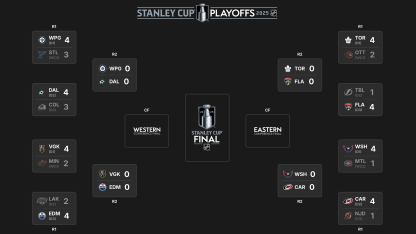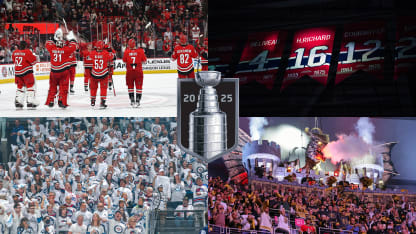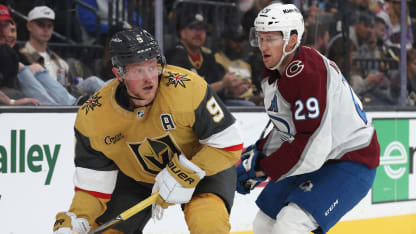The 4 Nations Face-Off was fantastic.
When Canada, Finland, Sweden and the United States played in Montreal and Boston from Feb. 12-20, the passion and level of play drew a huge audience of hardcore and casual fans.
Canada’s 3-2 overtime win against the United States in the championship game drew 16.1 million viewers across North America, making it the second-most watched hockey game across the continent in a decade.
Now it’s time for the Stanley Cup Playoffs. If you’re a hardcore fan, you already know. If you’re a casual fan -- especially if you’re someone who discovered the NHL during the 4 Nations -- you’re about to find out.
There’s nothing like it.
The 4 Nations Face-Off was special, because it was the first best-on-best tournament since the World Cup of Hockey 2016; many of the best players in the world were boiled down to four teams, and they played for their countries in a charged environment.
But the player pool was limited to, well, players from only four nations. It was seven games over two weeks. The Stanley Cup Playoffs will include players of all nationalities. This will be 16 teams playing four rounds of best-of-7 series over two months.
The 4 Nations Face-Off was a sprint. The Stanley Cup Playoffs are a marathon -- in which you must earn the right to compete during a six-month, 82-game regular season that eliminates half of the League.
Winning an international gold medal is awesome. The Stanley Cup is considered the hardest trophy in sports to win, however, because of the incredible physical, mental and emotional investment it takes.
Can you guess the most-watched hockey game across North America over the past decade? It was the Florida Panthers’ 2-1 win against the Edmonton Oilers in Game 7 of the Stanley Cup Final last season, which drew 16.3 million viewers across the continent. Edmonton was down 3-0 in that series. The Oilers refused to quit. The Panthers passed a gut check.
The Stanley Cup Playoffs will feature many heroes and villains from the 4 Nations, plus superstars who didn’t have a chance to compete. And this time there will be no Canada, no favorite going for a fourth consecutive title, although there will be five teams from Canada, including the Montreal Canadiens, trying to become the first Canadian team to win the Cup since the Canadiens in 1993.






















